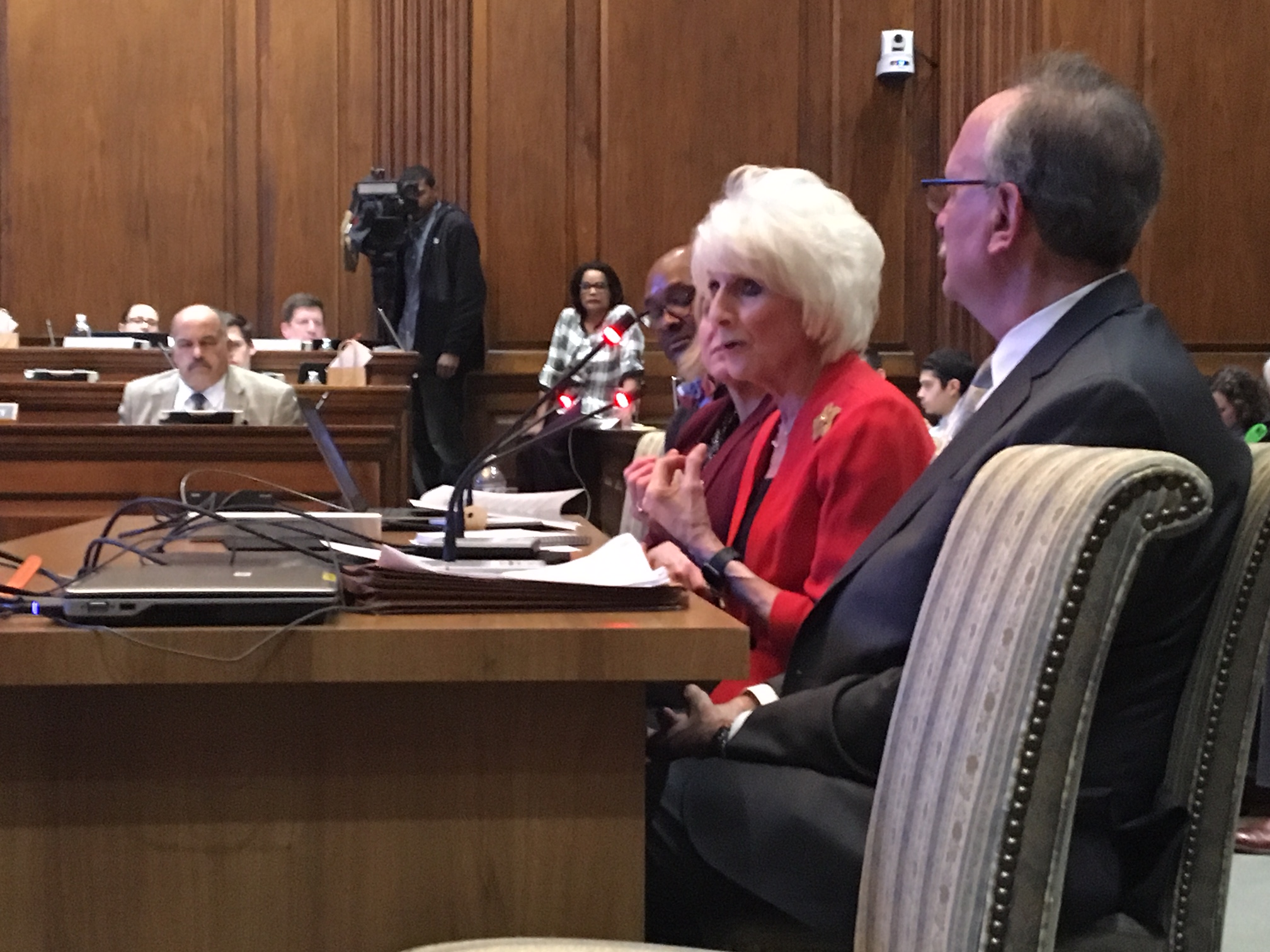As Legislative Debate Intensifies, Poll Finds Support for ‘End-of-Life Options’ Bill

Maryland residents believe, in greater numbers than before, that terminally ill patients with just months to live should have the right to end their lives.
According to a just-released survey by Goucher College, 62 percent support a proposal that would allow patients to take a fatal dose of drugs, provided the person is deemed mentally competent, has less than six months to live, and takes the pills themselves.
Goucher found that 29 percent of those surveyed said they “strongly support” what Annapolis sponsors call “end-of-life options” legislation.
Thirty-one percent opposed the idea. Of that group, 14 percent said they are “strongly opposed.”
Support for the proposition was up slightly from four years ago, when Goucher found 60 percent of Marylanders supported it, with 35 percent opposed.
On Friday, hundreds of Maryland residents turned out for a daylong hearing on HB 399, a measure sponsored by Del. Shane E. Pendergrass (D-Howard), which would give patients judged by a physician to have just months to live the opportunity to self-administer a lethal dose of prescription medication.
Backers, including WAMU talk show host Diane Rehm, say the measure would give people who are in chronic, debilitating pain the right to end their suffering.
She told the House Judiciary and Government Operations Committees that her first husband, who died of Parkinson’s disease in 2014, suffered greatly at the end.
“I sat by my husband’s side, day and night, for 10 days, as he slowly died,” Rehm said. “You could see the agony expressed in his face.”
“I believe very strongly that John Rehm should have had autonomy at the end of his life.”
Kim Callinan, CEO of Compassion & Choices, said Maryland’s bill is modeled after legislation already adopted in eight states, including Oregon, which adopted a “medical aid-in-dying” law 20 years ago.
She said the proposal includes numerous safeguards, including a requirement that the patient meet alone with a second physician, to make sure he or she is not being coerced by relatives or caregivers.
Patients “are in charge of the process from start to finish,” she testified. “Nobody is forced to choose this option. Doctors are not forced to practice. So the question before you, really, is, ‘Is it OK for a dying person to choose an option that would make their suffering less, and is that something that we as a society want to value?’”
Critics of the measure expressed concern that doctors can’t always predict how long a patient might live. And they said that people who depend on others for basic care might feel pressured to take their own lives so as not to be a burden.
“There is no right way to do the wrong thing,” said Dr. Kevin Donovan, Director of the Center for Clinical Bioethics at Georgetown University.
“If we redefine suicide as something good, others will feel the pressure to do something good for society, to ease the burdens for their family or even to be cost-effective.”
One lawmaker worried that “greedy heirs” might take advantage of the proposed law and cause harm to an ailing relative.
The American College of Physicians, The ARC Maryland, Americans United for Life, Maryland Right to Life and the Maryland Catholic Conference all oppose the measure.
U.S. Reps. Elijah E. Cummings (D) and Anthony G. Brown (D) both support the bill, as do the ACLU and numerous other religious groups. Callinan said that a growing number of physicians’ organizations, including most recently the American College of Family Physicians, have dropped their opposition to medical aid-in-dying.
“Compassion at the end of life means supporting their patients in what they want,” she said.
A companion measure, SB 311, sponsored by Sen. William C. Smith Jr. (D-Montgomery), will be heard by the Judicial Proceedings Committee on Tuesday.
Mileah K. Kromer, a Goucher College political science professor and director of the Goucher Poll, said her survey may help backers of the bill generate momentum, but success is far from certain.
“Advocates should feel some optimism that the public generally supports their aid-in-dying legislation – but this optimism should be tempered by the reality that in 2015 they had identical public support and the bill that didn’t make it out of committee,” she said.
“There will be targeted, organized opposition to this legislation just like in 2015. And this type of opposition can sway lawmakers.”
The poll surveyed 808 Maryland residents between Feb. 7-12. It had a margin of error of 3.4 points.
Gov. Lawrence J. Hogan Jr. (R) told reporters last week that he has conflicting emotions about the bill.
“I’ll be honest with you. It’s [an issue] that I’ve really wrestled with on a personal basis. I understand the passion and the concerns on both sides of the issue,” he said.
“It has never crossed my desk. I’m not sure what the status of it is in the legislature or whether anything’s going to pass or not. But it’s one that I’m going to give a lot of careful and heartfelt consideration to.”




 Creative Commons Attribution
Creative Commons Attribution